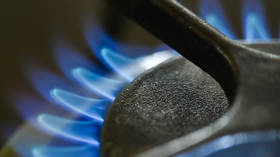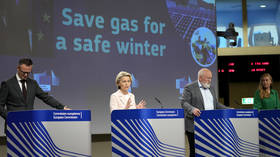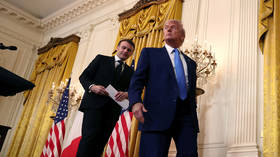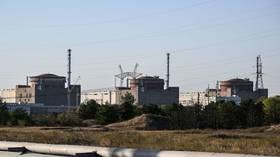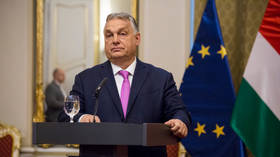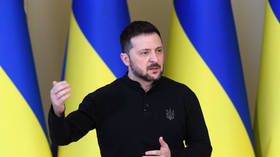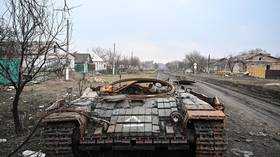Failure to agree gas deal exposes how EU will make united 'Stand with Ukraine' until sacrifices have to be made
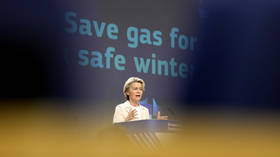
Last week, the European Union's Commission proposed a bloc-wide reduction of gas use by 15%, starting from August 1 and extending to at least March of next year. Officials from all 27 member states convened this week to discuss and finalize the proposal, after which Commission President Ursula von der Leyen cheered on Twitter: “I strongly welcome the endorsement by Council of the regulation to reduce gas demand and prepare for the winter. It is a decisive step to face down the threat of a full gas disruption. Thanks to today’s decision, Europe [sic] is now ready to address its energy security, as a Union.”
Von der Leyen’s public proclamation risks misleading the public into believing that the entire bloc is on-board with the vision set forth by EU leadership, but the only real unity on this issue is that EU countries that refuse to cut their gas use effectively agree that those who have no choice and no alternatives may need to ration their supply. So there’s really no solidarity among all 27 member states to reduce consumption by 15% voluntarily. And now the EU is forced to accept that reality, even as they try to spin it into a show of unity.
This is really all about the entire EU coming to the rescue of Germany – the bloc’s top economic engine – which lacked the courage to stand up to American pressure to sanction its pipeline projects with Russia. It then stood idly by while the EU did the same – all apparently without any viable backup plan for their own national economy. Berlin made a bad strategic mistake by depending so heavily on renewables when green energy is clearly not ready for prime time. Egged on by Brussels, officials talked a tough game about being strong and independent and not needing any Russian energy.
German economy minister Robert Habeck bragged about how he was whittling down his shower time over the course of the energy crisis – because apparently that’s sufficient to keep German industry humming along. But it was clearly all bluster. Berlin is still so reliant on Russian gas that it freaked out over a 10-day maintenance shutdown of the Nord Stream 1 pipeline, and is now panicking again over pipeline operator Gazprom’s reduction of delivery volume by 80% starting this week, citing continued maintenance issues.
It’s one thing to cry “gas blackmail,” as Brussels and Berlin are doing, but both brought this on themselves by sanctioning their own vital energy supplies. Of course, it's not exactly blackmail when you have a fight with your neighbor, cut all ties, brag about doing so to the entire world, and then get angry that they won’t just leave their shed wide open for you to continue using their lawnmower.
So to give Berlin a hand, the bloc’s member states have all now agreed that if Brussels ever imposes the 15% cut as a binding measure – well, they’ll just demand to opt out. That’s the kind of “unity” over which EU officials are patting each other on the back.
Malta, Cyprus, Ireland and Portugal either aren’t significantly connected to the EU internal energy supply network or aren’t reliant on gas, and want to maintain their independence. Meanwhile, France almost made the same foolish choices that Germany did by launching headlong into “green” energy, but then dodged a bullet when it successfully lobbied Brussels to reclassify nuclear power (on which it heavily relies) as “green” earlier this year. As a result, it figures that it can just fire up enough eroding and neglected nuclear energy plants again in short order to weather the current turbulence.
So, as the French ecology ministry has said, Paris is not at all on board with committing economic and political seppuku in abiding by these new EU constraints.
Greece and Spain also said no to the proposal, insisting on maintaining sovereign control over their own supply.
And Hungary is already heading full-speed in precisely the opposite direction, inking new Russian gas deals even as other EU members wring their hands over how they can continue to keep Ukrainian President Vladimir Zelensky happy without completely bleeding out their own economies. That’s a tall order because even as EU states were meeting to entertain Brussels’ latest proposal for downloading even more pain onto their own citizens, Zelensky was repeating his refrain that the EU isn’t doing enough for Ukraine and needs to hit Russia with even more sanctions, apparently oblivious or unmoved by the fact that sanctions are exactly why the bloc is in an economic nosedive that could ultimately lead to political repercussions.
As much as Eurocrats are paying lip service to the idea of solidarity, the reality is that the increased pressure – brought about by their own misguided decisions – is already causing cracks in the facade.
The statements, views and opinions expressed in this column are solely those of the author and do not necessarily represent those of RT.

